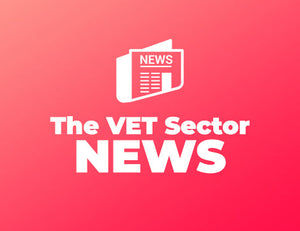
What are the plans for improving the vocational education and training sector - what are we missing?
SUKH SANDHUDespite the fact that the Australian vocational education and training sector (VET) needs improvement, and we hear all the regular updates and changes in the regulations, the new committees, the new standards, and the new guidelines, are we missing the main issues?
Several issues need to be addressed; the list includes, but is not limited to
- Incomprehensible training packages
- Bureaucratic over-governance
- Disproportionate funding
- Lack of real expertise at the guidance
- Those who are uninterested in providing quality education and training join the industry
- Training and assessment benchmarks that can be used to ensure effective training and assessment
- A mismatch between the skills that are being taught and those that are actually needed by employers
- VET sector needs to be more closely aligned with the needs of employers
- Higher education's recognition and acceptance of VET competencies - Improving linkages between vocational education and training and higher education
- What are recognition of prior learning and credit transfers? - Providing clearer definitions and explanations
- Encouraging greater innovation in the design and delivery of vocational education and training
- Supporting research, development and evaluation in the VET sector
- Encouraging the use of new technologies in vocational education and training
- Improving the availability and quality of information about the VET sector
- Expanding opportunities for people to access vocational education and training
- Improving transitions from school to vocational education and training, and from vocational education and training to work
- Encouraging more effective partnerships between employers and providers of vocational education and training
- Supporting the development of industry-recognised qualifications
- Supporting the delivery of high-quality apprenticeships and traineeships
- Encouraging employer involvement in the design and delivery of vocational education and training
- Improving the use of workplace-based learning in vocational education and training
- Supporting the growth of private providers of vocational education and training
- Encouraging the development of new models of delivery for vocational education and training
- Supporting the professionalisation of the VET workforce
- Encouraging the development of new skills in the VET sector
- Fostering international linkages in the VET sector
- Supporting Indigenous Australians to participate in vocational education and training
- Addressing specific needs in regional Australia
- Improving the quality of provision in the VET sector
It would be beneficial to have a discussion with the public and VET sector overall about what has been done to improve these issues.
- Providing clearer and more concise training packages that are easier for both trainers and students to understand and follow;
- Reducing bureaucratic over-governance to make the sector more agile and responsive to change;
- Increasing funding for VET programs so that they can better meet the needs of students and industry;
- Improving the quality of guidance and regulation around VET programs so that only the most effective and relevant programs are offered.
These issues contribute to a lack of effectiveness in the VET sector. If these issues are not addressed, it is unlikely that the VET sector will be able to meet the needs of students and Australian workplaces.
RECENT POSTS

Internal audits and why they are...
18 March, 2024

Software Turnitin given ability ...
12 April, 2023

The Future Of Artificial Intelli...
12 April, 2023


